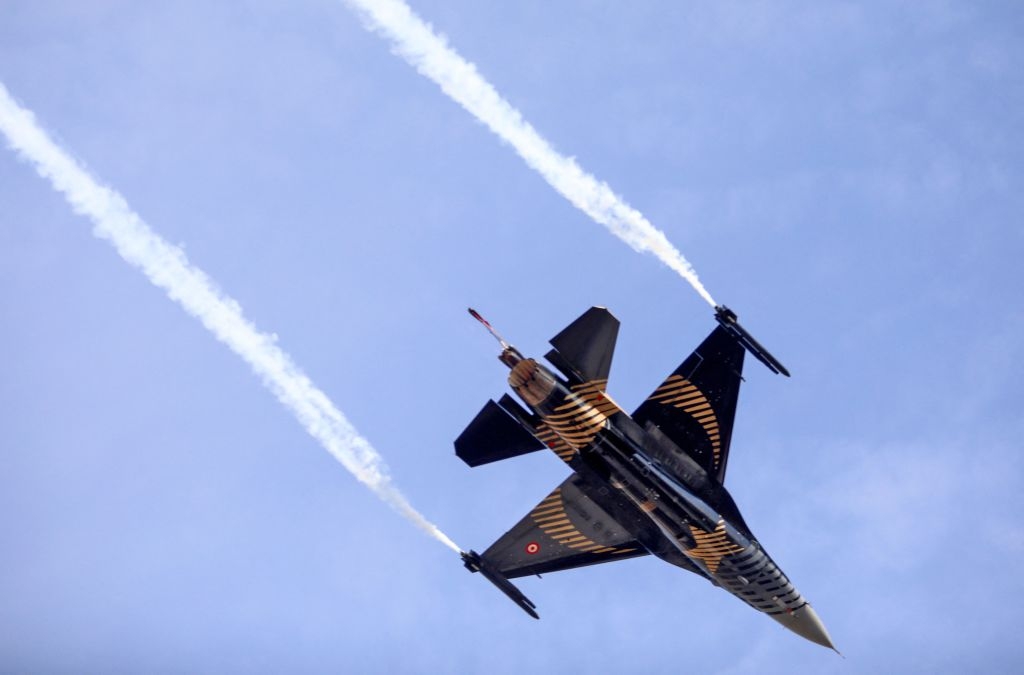
US President Donald J. Trump announced the latest addition to his remarkable Abraham Accords last week: China's and Russia's neighbor, Kazakhstan. Not only thanks to its oil and mineral deposits is it the largest and wealthiest country in Central Asia; its leadership is eager for closer ties with the US. Europe and the West, and the widening opportunities for growth that spring from them.
Israel's friendly ties with Azerbaijan are also perhaps one of the Jewish state's most potentially advantageous bilateral relationships. Israel and Azerbaijan, which have had diplomatic relations since 1992, have thriving military and economic linkages. Israel, incongruously, is now the leading importer of Azerbaijani oil. Azerbaijan, a Muslim-majority state, celebrates Israel's existence. Azerbaijan has, moreover, refrained from condemning Israel during the war in Gaza. One hopes that at some point, Azerbaijan, too, might join the Abraham Accords.
There is an enduring respect between Israel and Azerbaijan: Azeri Jews, a.k.a. "Mountain Jews," have always been treated well by Azeri Muslims. About 30,000 Jews still live in the country, practicing their faith without state or societal prejudice. Strategically, for Israel, it may be additionally significant that Azerbaijan has a 268-mile border and miserable relations with the Islamic Republic of Iran.
Israeli arms exports account for about two-thirds of Azerbaijan's weapons requirements, including anti-tank guided missiles, drones, and surface-to-surface guided missiles. The two countries cooperate on intelligence matters as well. Azerbaijan has allowed the Mossad, Israel's foreign intelligence agency, a branch office in the country. No doubt Mossad's intelligence-gathering mission in Azerbaijan proved to be advantageous before and during Israel's recent "12 Day War" with Iran.
There is, additionally, the sale of satellites and the sharing of satellite technology. This imagery of the disputed province of Nagorno-Karabakh, along with advanced Israeli weaponry, helped secure Azerbaijan's victory over Armenia in its "One Day War" on September 19, 2023.
The mutually advantageous links between Jerusalem and Baku may well have facilitated the Trump administration's intercession in helping to transform deep-rooted hostile relations between Azerbaijan and Armenia. The White House hosted an August meeting between Armenian Prime Minister Nikol Pashinyan and Azerbaijani President Ilham Aliyev, which resulted in a bilaterally signed "Treaty of Peace and Prosperity" between the historical enemies.
The US, as well, benefits from the reconciliation between Azerbaijan and Armenia. In addition to America signing economic agreements with both south Caucasus countries, the US was granted exclusive rights to develop an approximately 40-kilometer corridor bordering Iran. This commercial gateway, called the Zenga Uren Corridor, now, thanks to the treaty, links Azerbaijan with its formerly disconnected exclave territory, Nakhichevan. Leaders of both nations are grateful for the new corridor, which is being called the "Trump Route for International Peace and Prosperity" (TRIPP).
The increasingly pro-Western orientation of Azerbaijan and Armenia and the exclusive grant to the US for TRIPP could effectively shut out both Iranian and Russian access to commercial and investment activity in the region -- a US diplomatic and economic triumph that is likely cause for concern in Moscow and Tehran.
The Iranian regime would be vexed about the prospects of US and Israeli security cooperation directly on its border. Iranian relations with Azerbaijan have not exactly flourished since the latter became independent of the Soviet Union in 1991. For centuries, Iran has assumed an attitude of superiority in relations with Azerbaijan, which was a satrapy of several Persian imperial dynasties. Azeris constitute, by far, "the largest and best-integrated ethnic minority in Iran, making up 16% of its population," concentrated in Iran's northwestern provinces along its border with Turkey, Azerbaijan and Armenia. The Iranian regime might view Azerbaijan's new alliances as complicating its plans to destroy Israel, as it has been vowing -- and attempting -- to do since Iran's 1979 Islamic Revolution.
Although Azerbaijan has enjoyed close relations with Turkey, relations between Turkey and Israel have now reached an all-time low. Turkish President Recep Tayyip Erdogan – after accusing Israel of genocide and crimes against humanity, and issuing arrest warrants for 37 Israeli officials, including Prime Minister Benjamin Netanyahu -- reportedly took Trump's assurance of a Turkish role in the future of Gaza, without consulting Israel, as a green light to assemble 2,000 special forces troops to occupy Gaza. What could possibly go wrong?
Erdogan is also trying to buy F-35 jets – to use for what? -- from the US, which always appears delighted to make a sale. If Trump has any interest in peace in the Middle East, this is one sale he must unquestionably turn down.
Dr. Lawrence A. Franklin was the Iran Desk Officer for Secretary of Defense Rumsfeld. He also served on active duty with the U.S. Army and as a Colonel in the Air Force Reserve.


